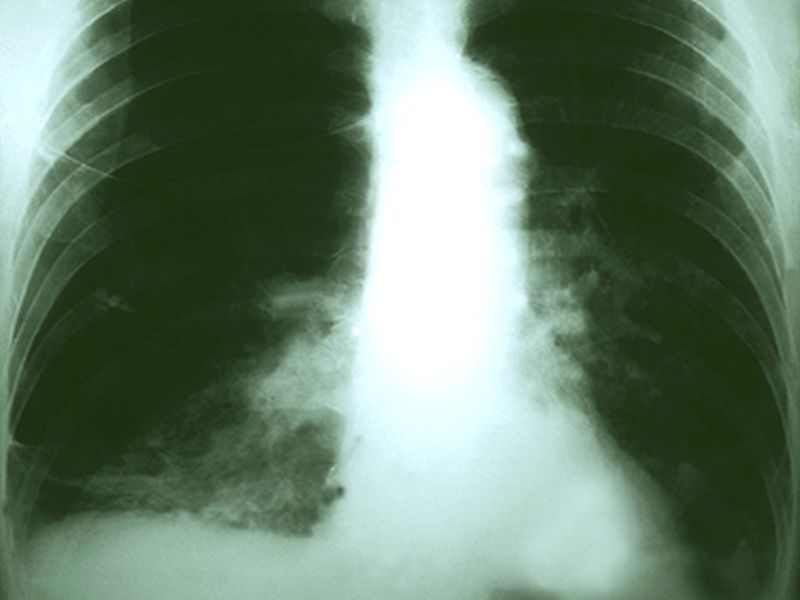

Study Says Blood-Chromosome Test Predicts Lung Cancer's Return
Unstable chromosomes quadruple a patient's risk of relapse, death within 2 years, researchers reportWednesday, April 26, 2017

WEDNESDAY, April 26, 2017 (HealthDay News) -- Unstable chromosomes within lung cancer tumors increase the risk that the cancer will return after surgery, researchers report.
The investigators said they used this new information to forecast the return of lung cancer long before standard tests could spot it.
The findings were published April 26 in the New England Journal of Medicine and Nature.
The Cancer Research UK-funded TRACERx study included 100 patients with non-small cell lung cancer. The study participants were followed from diagnosis, through surgery, to either cure or disease relapse.
Patients with a high proportion of unstable chromosomes in their tumors had more than quadruple the risk of their cancer returning, or of dying from their disease, within two years, the findings showed.
The study offers "new insights into how tumors evolve and evade treatment, a leading cause of cancer death," lead researcher Charles Swanton said in a Cancer Research UK news release.
"We believe that this invaluable data generated during TRACERx will be seized upon by research teams across the world, helping us to answer more questions about lung cancer biology. We've only scraped the surface in terms of what is possible by looking at tumor evolution in such detail," Swanton said. He is a clinician scientist at the Francis Crick Institute in London.
Genetically diverse tumors are more likely to evolve, spread and become drug-resistant, making treatment much more difficult. Unstable chromosomes are the driving force behind genetic diversity in tumors, the study authors said.
According to the study's lead author, Mariam Jamal-Hanjani, "Determining the relationship between diversity within tumors and patient survival is one of the primary goals of TRACERx, so to find evidence for this so early on in the study is really encouraging.
"We've also identified what causes lung cancer to advance, providing us with insight into the biological processes that shape the evolution of the disease," Jamal-Hanjani added in the news release.
She is a researcher at University College London Cancer Institute.
The researchers said they also found that blood tests for unstable chromosomes could identify patients at high risk for relapse up to a year before imaging could confirm return of the disease.
Karen Vousden is Cancer Research UK's chief scientist. She said, "These findings could also help us to identify how lung cancers respond to therapy, building a bigger picture of the disease and potentially pointing the way to developing new treatments and, crucially, saving more lives."
SOURCE: Cancer Research UK, news release, April 26, 2017
HealthDay
Copyright (c) 2017 HealthDay. All rights reserved.
News stories are written and provided by HealthDay and do not reflect federal policy, the views of MedlinePlus, the National Library of Medicine, the National Institutes of Health, or the U.S. Department of Health and Human Services.
- More Health News on
- Lung Cancer








































No hay comentarios:
Publicar un comentario